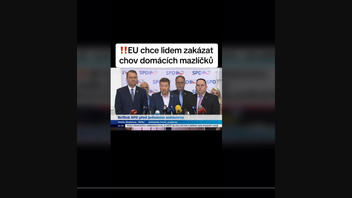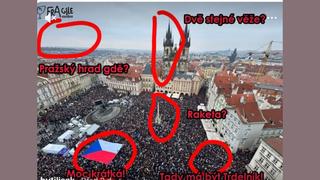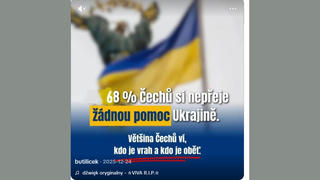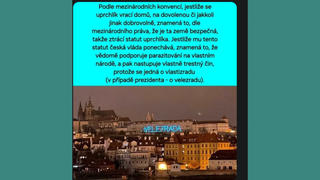
Is the European Union seeking to prohibit people from keeping pets? No, that's not true: Brussels is introducing an initiative to ban the breeding of wild and exotic animals in captivity as pets across all 27 EU states. Once a list of animals suitable for breeding is established, those not on the list will be permitted to be bred only in certified zoons and rescue stations.
The claim appeared in a video published by @tomiospd on TikTok on October 24, 2023, (archived here) with the following description (translated from Czech to English by Lead Stories staff) that reads:
‼️EU wants to ban people from keeping pets, hamsters, parrots, snakes and more. #tomio #okamura #foryou #protebe #tomiookamura #animal #animals #zvirata #zvire #pet #pets #eu
Users on social media only saw this title, description, and thumbnail:
Tomio Okamura on TikTok
‼️EU chce lidem zakázat chov domácích mazlíčků, křečků, papoušků, hadů a dalších. #tomio #okamura #foryou #protebe #tomiookamura #animal #animals #zvirata #zvire #pet #pets #eu
This is what the post looked like on TikTok at the time of writing:
(Source: TikTok screenshot taken on Fri Nov 3 00:59:34 2023 UTC)
The positive list of farmed animals remains only an intention and has not received approval at the time of writing. The European Parliament has urged the European Commission to conduct a feasibility study to establish a positive list of animals suitable for breeding.
Nine European countries have already implemented such lists, including France, Italy, Lithuania, Belgium, the Netherlands, Cyprus, Luxembourg, Slovenia, and Malta. These lists prohibit the breeding of various animals, like jungle hamsters, degu octopuses, chinchillas, macaws, Australian neophytes, and cockatiels, as well as large reptiles, poisonous spiders, grackles, and pythons. For instance, the Netherlands allows the breeding of 30 different species of animals.
In the Czech Republic, animal breeding is already regulated by so-called negative lists. These lists, endorsed by expert opinions, cover invasive species, fur-bearing animals, certain carnivores, rodents, birds, amphibians, and snakes, according to the Czech Breeders Association. Moreover, breeding facilities for so-called dangerous animals must meet specific requirements. The inclusion of species on the negative lists is always based on well-justified expert opinions.
According to the Czech Breeders Association, the lists include invasive species, fur-bearing animals, some carnivores, rodents, birds, amphibians, and snakes. In addition, so-called dangerous animals are subject to specific requirements for their breeding facilities. Including species on the negative lists is always well justified by expert opinion. In addition, so-called dangerous animals are subject to specific requirements for their breeding facilities. The inclusion of species on the negative lists is always well justified by expert opinion.











